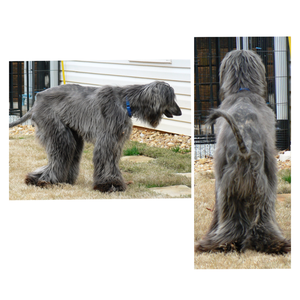Prepare to unleash your excitement because we have some paw-some news to share! We proudly announce the release of over 100 new tests for our Paw Print Genetics® and Canine HealthCheck® genetic solutions!
Paw Print Genetics®
We have some wonderful news for all dog owners and lovers out there! Paw Print Genetics, the leading provider of canine genetic testing, has expanded its offerings with the introduction of 49 new tests, bringing our total collection to nearly 350 breed-specific tests!
Our team is dedicated to ongoing research and development to improve the health and well-being of our beloved furry companions. With this latest expansion, we aim to provide even more valuable insights into your dog's genetic makeup.
Our comprehensive genetic tests cover a wide range of aspects, including identifying potential diseases, uncovering risk factors, and revealing intriguing traits. Whether you have a Golden Retriever with Congenital Myasthenic Syndrome or a Portuguese Water Dog with Progressive Retinal Atrophy, we've got you covered. Our tests offer valuable information that can help you make informed decisions about your dog's health.
Moreover, our R Locus test can shed light on your dog's coat color genetics, revealing the secrets behind their unique appearance. We also offer ...









